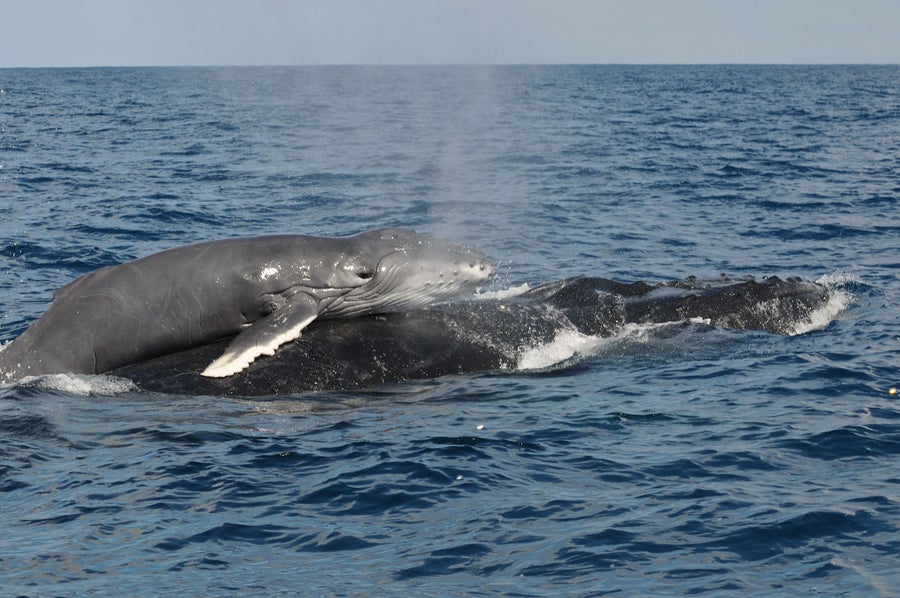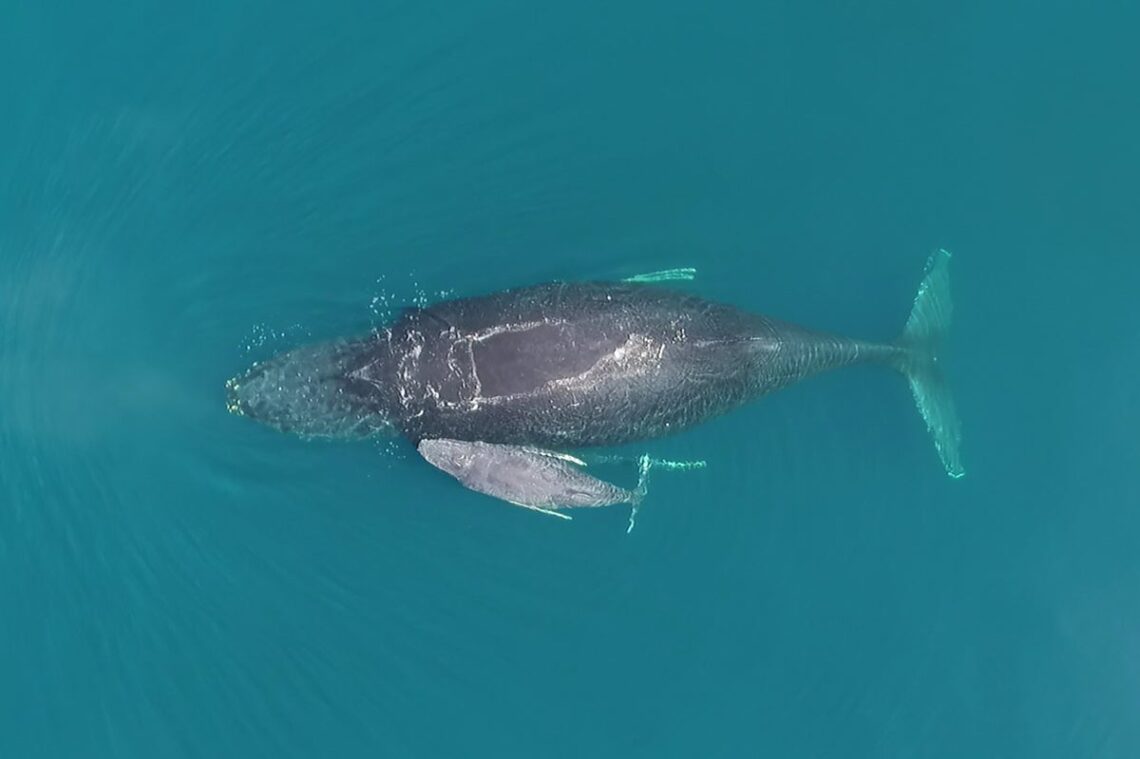December 17, 2024
3 min read
Hear How Baby Humpback Whales Burp and Bark to Beg for Food
The burps, barks and snorts humpback whales make when asking their mother for milk are the first recorded instances of begginglike behavior in a baleen whale
Aerial view of a humpback whale mother-calf pair off Sainte Marie Island, also known as Nosy Boraha.
Newborn humpback whales can measure more than 15 feet from nose to tail fluke and weigh as much as full-grown giraffes. But these hefty calves still need to pack on the pounds quickly to reach their parents’ even more prodigious proportions. Each day, a humpback calf guzzles hundreds of liters of its mother’s milk, which is as thick as toothpaste and loaded with fats.
And just like a human baby shows off its impressive lung capacity when hungry, a baby humpback whale with a hankering for milk lets its mother hear it. According to a new study published Wednesday in Proceedings of the Royal Society B: Biological Sciences, hungry humpback calves produce low-frequency vocalizations to signal their nourishment needs. These noises, which sound like burps, barks and snorts, are the first recorded instances of begginglike behavior in a baleen whale.

A newborn humpback whale calf resting on its mother’s back.
On supporting science journalism
If you’re enjoying this article, consider supporting our award-winning journalism by subscribing. By purchasing a subscription you are helping to ensure the future of impactful stories about the discoveries and ideas shaping our world today.
Humpback whales possess an impressive vocal repertoire that helps them communicate over long distances and through murky waters. Adult males compose haunting songs to woo mates. And all humpbacks produce less structured calls that they use in a variety of social situations.
Scientists have studied these calls for decades, but relatively little research has focused on the vocalizations between humpback calves and their mother, says lead study…
Read the full article here

